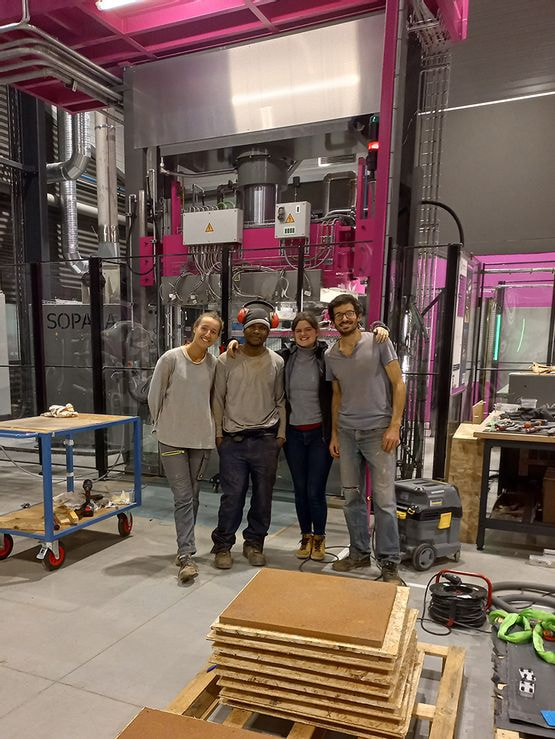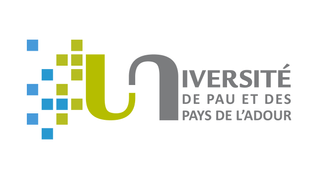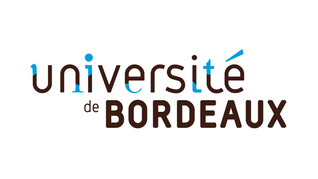Our ecosystem

Our collaborative research teams
A synergy between researchers and engineers
Collaborative research teams consist of university researchers, doctoral students, postdoctoral researchers, and NOBATEK engineers, including those pursuing doctoral studies or holding PhDs. They work together on resource projects and strategic themes with the clear goal of establishing these shared laboratories as reference points in Europe. NOBATEK has established two shared research teams in partnership with the Université de Pau et des Pays de l’Adour and the Université de Bordeaux, receiving strong support from the Nouvelle-Aquitaine region. These teams promote the development of projects in collaboration with various laboratories and research chairs at these universities.
The labs involved
The main laboratories involved in our collaborative research teams and in national academic research more generally:
- UPPA laboratories: SIAME, LATEP, LIUPPA
- UB laboratories: I2M, LABRI, VIA INNO, BSE, IMS
- Other national laboratories: LASIE (Université de la Rochelle), GSCOP and G2ELAB (Grenoble INP), IRDL (Université Bretagne Sud), LIB (Université de Bourgogne), MECADEV (Muséum national d’Histoire naturelle).
Université Pau et Pays de l’Adour (UPPA)
The collaborative research team with the Université de Pau et des Pays de l’Adour (UPPA), deals with worksite 4.0 and low-carbon materials, under the scientific supervision of Christian La Borderie and Jean-Michel Reneaume.
The main work carried out focuses on the development of :
- Design and decision-making tools for the implementation of urban heating networks
- Low-carbon construction materials and systems (bio-sourced and geo-sourced),
- Design tools for natural and artificial lighting in buildings and the use of rapid prototyping (3D printing) to validate physical models.
Number of teacher-researchers involved: 10

Université de Bordeaux (UB)
The collaborative research team with the University of Bordeaux, led by Laurent Mora and Thomas Recht, focuses on guaranteeing performance throughout a building’s lifecycle and developing low-carbon technological building blocks. The projects focus on:
- Advanced modeling and simulation to predict, assess, design, and optimise the use of buildings
- The development of artificial intelligence algorithms to characterise usage and manage buildings
- Integrating and exploiting solar energy in buildings
- Design methods for developing and sizing innovative, bio-inspired solutions for buildings
- Design methods and tools to qualify technological positioning and innovation trajectories within the sustainable construction sector.
Number of teacher-researchers involved: 15

Our endowment fund

Addressing today’s issues and exploring tomorrow’s challenges
The CERCLE PROMODUL endowment fund is dedicated to fostering collaboration between teams and corporate sponsors in the areas of energy, environmental, and digital transition within the building industry.
The sponsors of the Endowment Fund collectively represent a turnover of 21 billion euros and employ over 100,000 individuals. CERCLE PROMODUL also partners with the “Conseil stratégique de filière Industries pour la construction” to support structuring projects of general interest aligned with the French recovery plan. The fund is chaired by Arnaud Tractère, Managing Director of Saint-Gobain solutions France, and managed by Jean-Luc Buchou. It is driven by a dual public-interest mission, which is organised and led through:
5 steering committees
These committees are organised into working groups, made up of industrial sponsors and NOBATEK engineers, focusing on the challenges of the energy, environmental and digital transition in the building industry. The aim of these working groups is to produce deliverables and tools that can be accessed freely by everyone on the CERCLE PROMODUL Lab.
The innovation platform
The sponsors and the NOBATEK teams conduct thorough monitoring to analyze the challenges in the construction sector and understand market needs. They translate these findings into collective or private innovation projects aimed at addressing the issues and challenges of sustainable building. As a result, there is a mutually beneficial outcome surrounding innovation, expectations, and industrial needs, which helps to qualify innovative projects that can then be coordinated by NOBATEK.
Our technological centers partners














Our research laboratory partners














Our professional networks























